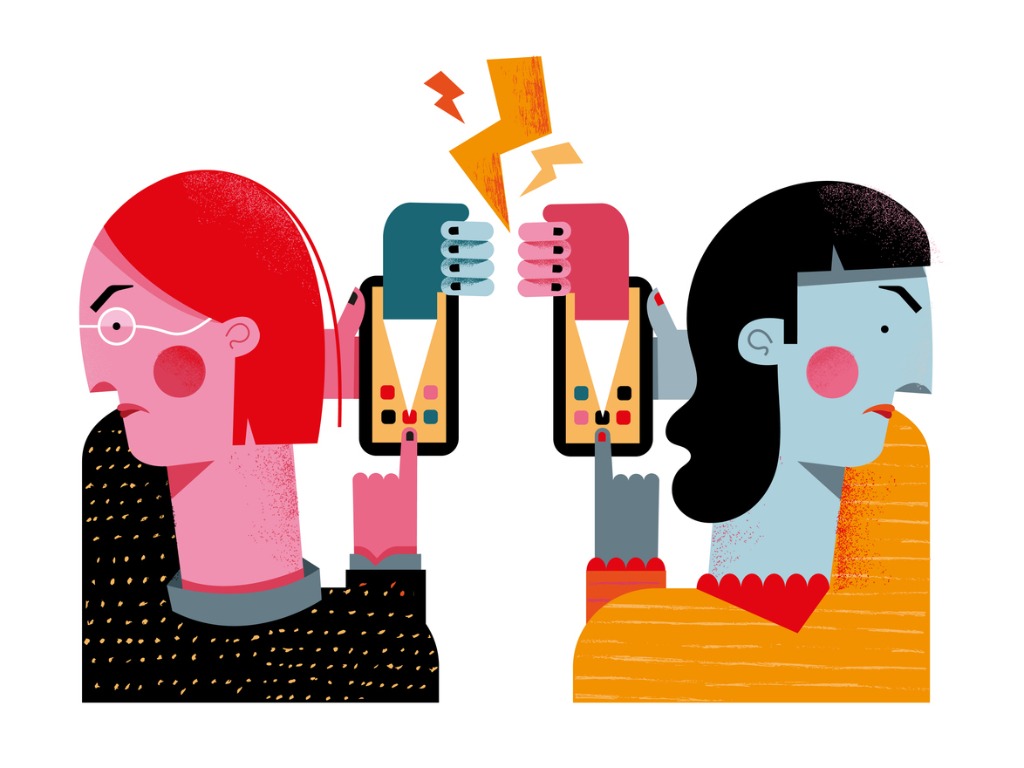
Carole Spiers highlights the symptoms of mobile phone addiction and gives us some strategies to beat it
Do you recognise yourself here?
You:
- feel anxious when your phone battery gets low
- can’t leave the house without your phone
- feel annoyed when you can’t access your phone
- put your life or those of others at risk to check your phone
- use your phone to check for work updates while on holiday
- find yourself waking up at 3 a.m. to check your email or social media accounts
- make sure you can access your phone whenever it is in your hand or pocket
- check your phone several times an hour to make sure you haven’t missed a notification
- use your phone when bored
- know your phone use is having a negative effect on your relationships
If you can answer ‘yes’ to most of these questions, then you are probably experiencing Nomophobia [NO MObile phone PHOBIA]. This is a term used to describe a psychological condition when people have a fear of being detached from mobile phone connectivity. It is now in the Cambridge dictionary and is also sometimes called ‘cell phone addiction’.
The symptoms of nomophobia are separation anxiety, low self-esteem, increased heart rate and blood pressure, social anxiety disorder, panic attacks, fear and panic.
Technostress and device dependence
Technology is impacting on our mental health. Family life is suffering. Many of us are checking emails and making calls on our mobiles before we are even out of bed.
Our phone goes everywhere with us. It sits in the bathroom as we clean our teeth and is never out of sight. We read the paper on our phone and we do our banking with a flash of the screen. We speak to friends on Instagram and Facebook, tweet on Twitter, chat on WhatsApp. We even wake in the night to take that transatlantic business call.
Are we really more productive? We have become angrier and more anxious, and yes, even depressed, as we struggle to manage our technology. We live our lives on our devices, but are we more efficient?
How to beat your mobile phone addiction
- Keep yourself on a schedule. Carve out specific time to use your phone. If you have business calls to make, then make them at the same time – you will be more efficient.
- Don’t answer the phone just because it rings – voicemail works very efficiently.
- Turn off your push notifications so you don’t feel overwhelmed. You don’t need a ping or whoosh to tell you that there is an email waiting for you.
- Take distracting apps off your home screen.
- Limit your children’s screen time to an acceptable level.
- Don’t play with your children with your phone in your hand.
- Buy an alarm clock and make the bedroom a phone-free zone.
- Physically turn off your phone (and other electronic devices) at night and leave them in another room.
- Put your phone away while eating and socialising with friends.
- Don’t try to multi-task with your phone, iPad or computer.
The internet can enrich our lives in many ways, and we are fortunate to live in an era when we are able to connect with people on the other side of the world in an instant, but the omnipresence of this technology, and its potential for addiction, is having an impact on our lives, and it can only increase as technology use increases even more. Learn to manage time during the day without the addiction trigger in your pocket.
If you recognise yourself in this article, then put some of the tips into practice one day at a time. I look forward to seeing you at the other end of a conversation – without a phone!













